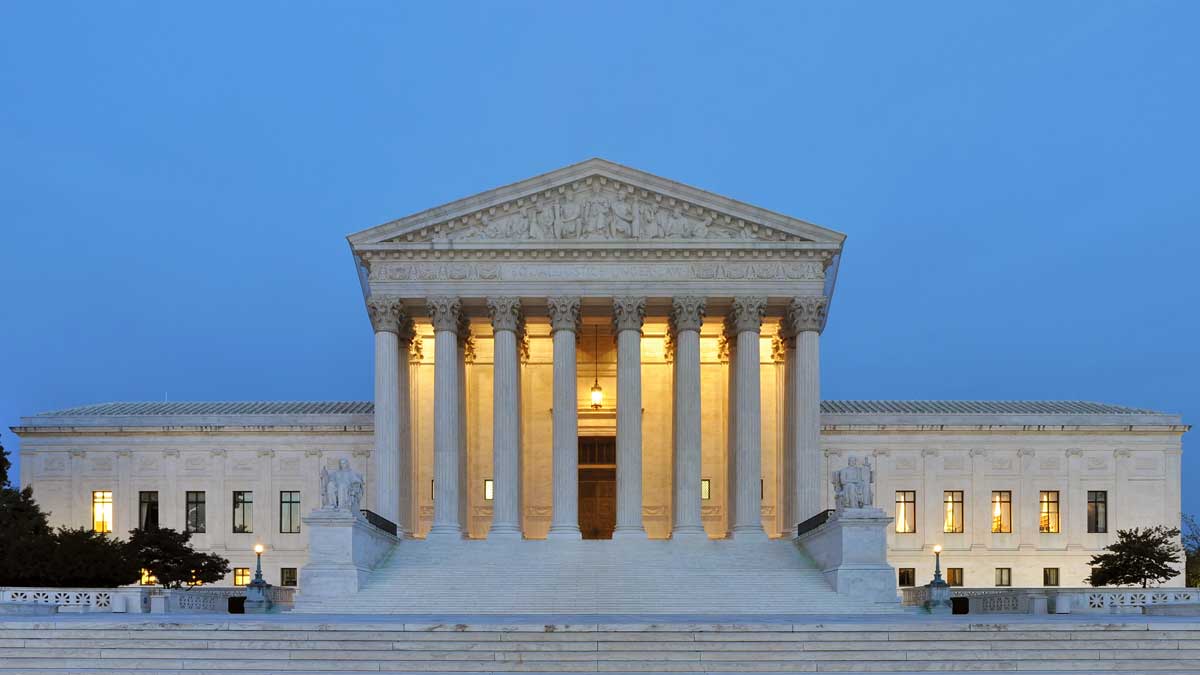- Home
- Billionaires
- Investing Newsletters
- 193CC 1000
- Article Layout 2
- Article Layout 3
- Article Layout 4
- Article Layout 5
- Article Layout 6
- Article Layout 7
- Article Layout 8
- Article Layout 9
- Article Layout 10
- Article Layout 11
- Article Layout 12
- Article Layout 13
- Article Layout 14
- Article Sidebar
- Post Format
- pages
- Archive Layouts
- Post Gallery
- Post Video Background
- Post Review
- Sponsored Post
- Leadership
- Business
- Money
- Small Business
- Innovation
- Shop
Recent Posts
Supreme Court Upholds Tax on Unrealized Gains

The Supreme Court has upheld a tax policy that critics feared could significantly impact federal tax policy and the U.S. economy. The ruling, which came in response to a case brought by Charles and Kathleen Moore, maintains the “mandatory repatriation tax” (MRT), a provision of the GOP’s 2017 tax law. This tax imposes a one-time tax on U.S. individuals and companies with substantial stakes in foreign corporations controlled by Americans.
The Moores argued against being taxed on “unrealized gains,” which are investments that have not yet yielded a profit. They contended that taxation should occur only when gains are realized, or when investments are sold at a profit. However, the court, in a 7-2 decision, upheld the MRT, ruling that it falls within Congress’ authority. Chief Justice John Roberts and Justices Brett Kavanaugh, Samuel Alito, and Amy Coney Barrett, along with the court’s three liberal justices, supported the ruling.
Overturning the MRT could have led to significant tax relief for corporations, with an estimated $271 billion in tax relief predicted for 400 multinational corporations. It could have also impacted Democrats’ proposals for a wealth tax on the wealthiest Americans. However, the court’s decision did not address the taxation of unrealized gains in the context of a wealth tax, leaving room for future legal challenges.
The ruling is seen as narrow, focusing on the constitutionality of the MRT and not addressing broader questions about taxing unrealized gains. This leaves the door open for Democrats to pursue a wealth tax on unrealized gains, with President Joe Biden proposing a “Billionaire Minimum Income Tax” on households worth more than $100 million.
The dissenting opinion, authored by Justice Clarence Thomas and joined by Justice Neil Gorsuch, argued that Congress lacks the authority to tax unrealized gains under the MRT. The dissent also raised ethical concerns about the case, noting Justice Samuel Alito’s refusal to recuse himself despite potential conflicts of interest.
The Moore case has been closely watched for its potential impact on U.S. tax policy, with experts warning that a ruling in favor of the Moores could have called into question the constitutionality of many other long-standing tax provisions. However, with the court upholding the MRT, the status quo in tax policy remains unchanged, at least for now.
Recent Posts
Categories
- 193cc Digital Assets2
- 5G1
- Aerospace & Defense46
- AI37
- Arts3
- Banking & Insurance11
- Big Data3
- Billionaires449
- Boats & Planes1
- Business328
- Careers13
- Cars & Bikes76
- CEO Network1
- CFO Network17
- CHRO Network1
- CIO Network1
- Cloud10
- CMO Network18
- Commercial Real Estate7
- Consultant1
- Consumer Tech180
- CxO1
- Cybersecurity68
- Dining1
- Diversity, Equity & Inclusion4
- Education7
- Energy8
- Enterprise Tech29
- Events11
- Fintech1
- Food & Drink2
- Franchises1
- Freelance1
- Future Of Work2
- Games141
- GIG1
- Healthcare78
- Hollywood & Entertainment186
- Houses1
- Innovation42
- Investing2
- Investing Newsletters4
- Leadership65
- Lifestyle11
- Manufacturing1
- Markets20
- Media193
- Mobile phone1
- Money13
- Personal Finance2
- Policy567
- Real Estate1
- Research6
- Retail1
- Retirement1
- Small Business1
- SportsMoney33
- Style & Beauty1
- Success Income1
- Taxes2
- Travel10
- Uncategorized8
- Vices1
- Watches & Jewelry2
- world's billionaires418
Related Articles
Trump Moves $4B Stake in Truth Social Parent, Stock Drops 6%
Donald Trump recently transferred his 57% stake in Trump Media & Technology...
By 193cc Agency CouncilDecember 20, 2024House Rejects Trump-Backed Funding Bill, Shutdown Looms
The U.S. House of Representatives rejected a new government funding bill on...
By 193cc Agency CouncilDecember 20, 2024Trump Named Time’s Person of the Year for Second Time
On Thursday, Time magazine honored Donald Trump as its “Person of the...
By 193cc Agency CouncilDecember 12, 2024Meta Donates $1 Million to Trump’s Inaugural Fund
Meta, the parent company of Facebook and Instagram, has confirmed a $1...
By 193cc Agency CouncilDecember 12, 2024















Leave a comment